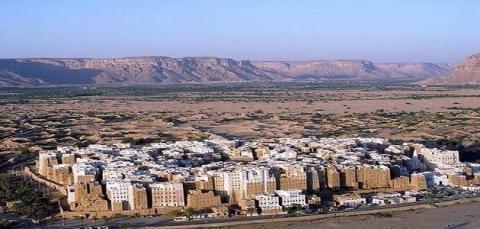Covid wave stalking Yemen strikes fear in hospitals


Sitting by his wife’s graveside, Musheer Farhan recalls how she was turned away from three hospitals over fears she had coronavirus, although she was heavily pregnant and suffering from breathing problems.
Balqees and her unborn child eventually died in the fourth hospital she had been taken to in the war-torn country’s capital Sanaa, leaving behind her husband and an infant son.
The 31-year-old was effectively a victim of a second wave of the pandemic in the country — already on its knees amid a war in its seventh year — that is leading doctors to refuse treatment to those suspected of infection.
Along with medics’ uncertainty over how to treat suspected Covid-19 cases, hospitals lack critical supplies, including oxygen, and are blighted by frequent power cuts.
The Iran-backed Huthi rebels, who seized the capital from the government in 2014 and control much of the north, do not release data on infections.
But the toll from Covid-19 has become a hot topic in Sanaa, with evidence mounting of a spike in cases in the past month across the country, including the south which is under the control of the internationally recognised government.
Farhan said Balqees arrived at the fourth hospital too late to be saved.
“She entered the examination room, I went to buy medication, and I came back to find her lifeless body,” he told AFP.
“The obstetrician and anaesthesiologist refused to perform an operation to save the mother, and the baby, over fears she had coronavirus.”
Yemen’s long conflict between the government — supported by a Saudi-led military coalition — and the Iran-backed Huthis has left tens of thousands of people dead and pushed millions to the brink of famine.
The United Nations calls it the world’s worst humanitarian crisis, with over four million people displaced and two-thirds of Yemen’s 30-million population dependent on aid.
The country, long the most impoverished in the Arabian Peninsula, is on the brink of total collapse.
Schools, factories and hospitals have been destroyed, many children recruited as soldiers, and countless people have lost their livelihoods.
Despite the pandemic, outside the overstretched hospitals, life in Sanaa seems normal, with markets bustling and mosques crowded with worshippers during the Muslim holy month of Ramadan.
It is rare to see anyone wearing a mask, and precautionary health measures are nonexistent.
“There is no official data, no official communication, and the results of tests aren’t published,” a humanitarian worker familiar with the health situation in Yemen said of the rebel-held areas.
Cases reported in the south began escalating in mid-March, prompting a warning from the country’s coronavirus committee of a public health “emergency”.
But there is also mounting evidence of an uptick in infections in the capital, the source said.
“Public hospitals are close to being full. At private hospitals, the situation is unclear.”
“People are often reluctant to go to hospital when they have Covid-like symptoms,” the source added.
“People are concerned about the stigma, sometimes they don’t believe they will be treated. They are afraid because of rumours and don’t trust the medical system.”
Huthi health authorities did not respond to AFP’s request for comment.
Officially, Yemen has recorded 6,137 coronavirus cases, including 1,187 deaths, but numbers are likely dramatically higher.
Last month, Yemen received its first shipment of Covid-19 vaccines via the Covax programme, which aims to ensure equitable access to the jabs.
The 360,000 AstraZeneca doses arrived in the southern port city of Aden, Yemen’s de facto capital, where the internationally recognised government is based.
Ishraq al-Sibai, spokeswoman for Yemen’s national Covid-19 emergency committee, said 10,000 doses were handed over to the World Health Organization to transport to Sanaa for rebel-held areas.
But she cast doubt on whether the Huthis would use the jabs to inoculate medical staff, saying: “Perhaps they’ll use it to vaccinate Huthi officials.”
For Farhan, a 35-year-old who works for a security firm, it is all too late and the death of his wife — who doctors said eventually tested negative for Covid-19 — was all too avoidable.
“My wife just needed some quick assistance to help her breathe and save her and our baby,” he said.

Paris — The French humanitarian organization Acted announced that it has delivered cash assistance to nearly 89,000 people affected by displa…

Sana’a — Fuel and food imports into ports under the control of Yemen’s Houthi movement on the Red Sea have continued to fall for…

ADEN — Yemen Airways, the country’s national carrier, announced it will resume flights between Aden and Abu Dhabi beginning in January…